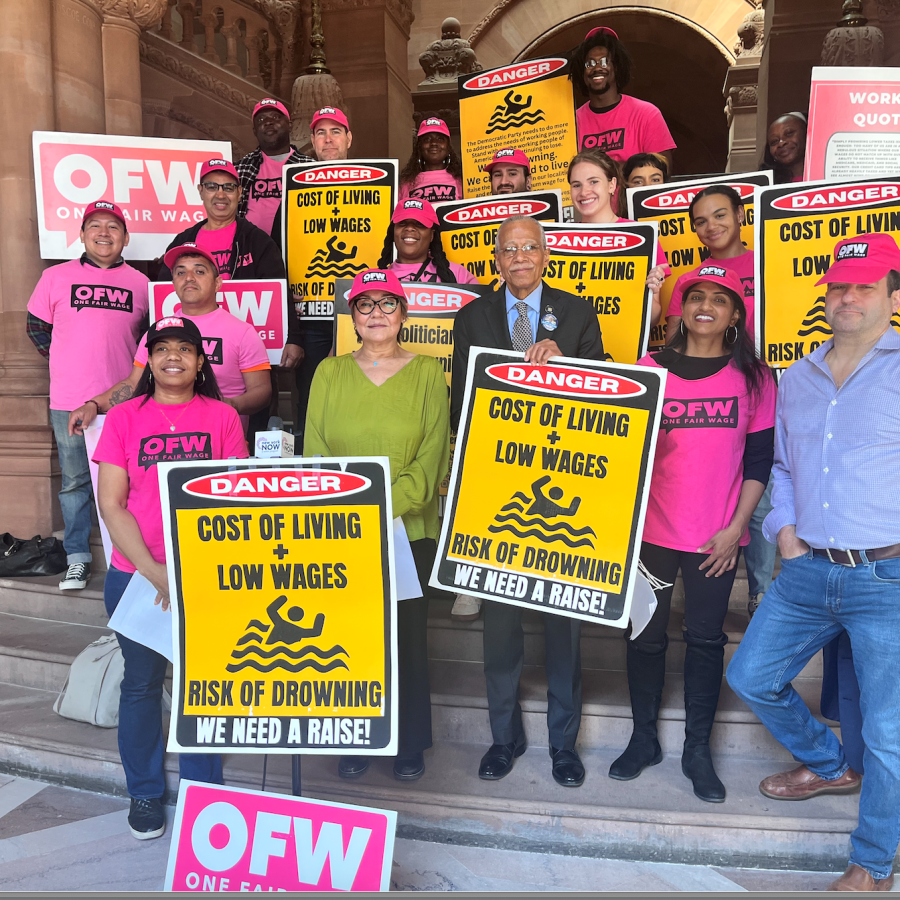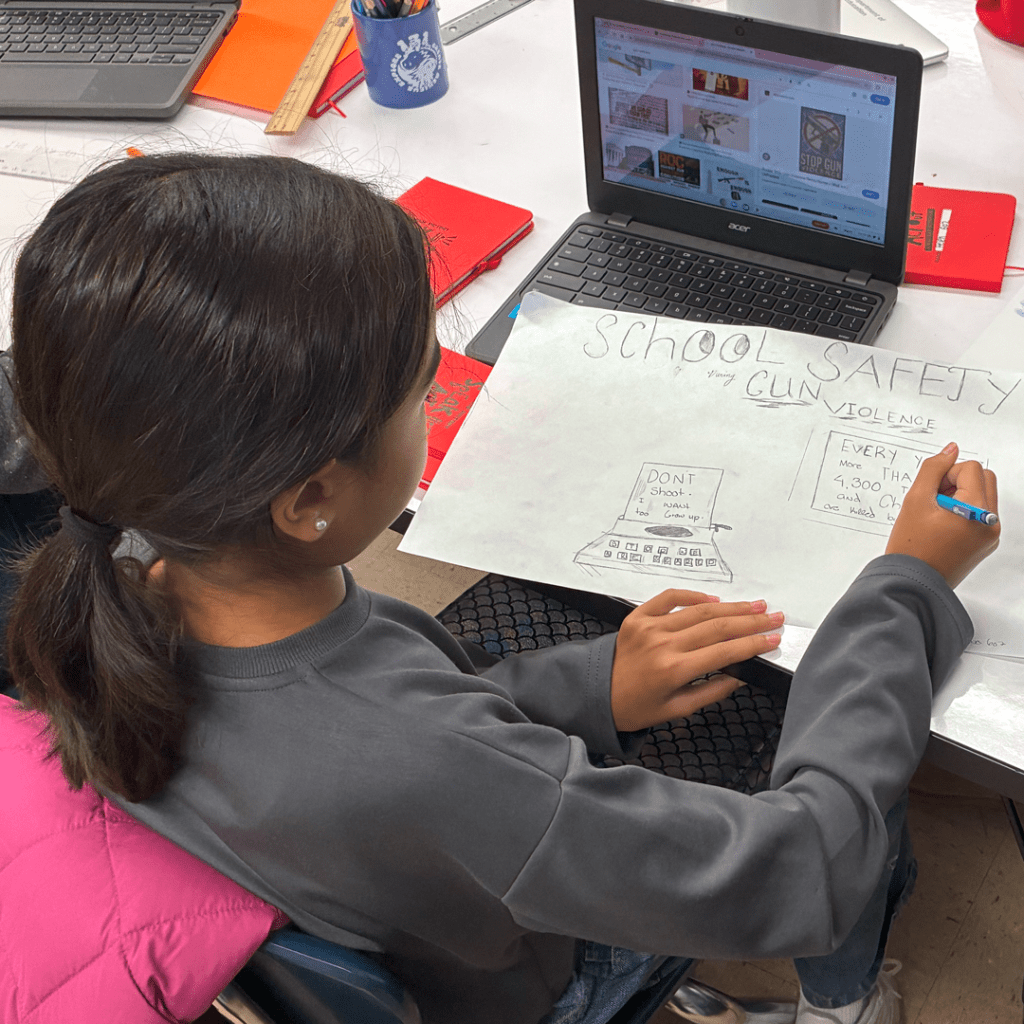“Every poll, for every demographic in the last year, shows that the top issue for New Yorkers is the cost of living and the current affordability crisis, which is only getting worse,” said Saru Jayaraman, president of One Fair Wage, a national nonprofit working to raise wages and improve conditions in the service sector. “Nowhere is that more true than for restaurant workers, who are the lowest paid workers in New York and the lowest paid workers in the country.”
In 2019, with support from The Trust, advocates helped pass legislation that won wage increases for more than 70,000 tipped workers—including valet parking attendants, tour guides, car washers, and nail technicians—across the state.
But restaurant industry lobbyists persuaded lawmakers to exclude food sector workers from the law. New York State still allows employers to pay wait staff, bartenders, and other tipped restaurant workers an hourly wage of $10.65 if tips are expected to bring their wages up to the regular minimum wage of $16.
Ending a Jim Crow legacy
“The subminimum wage is a direct legacy of slavery,” said Jayaraman. “It was created after emancipation to allow restaurants to hire Black people for free and force them to live on customer tips.”
One Fair Wage is currently moving legislation and ballot measures in nine states to raise wages and end subminimum wages for millions of workers. So far, it has secured victories in Michigan; Washington, D.C.; Flagstaff, Arizona; and Chicago, Illinois.
With support from a Trust grant, One Fair Wage is using advocacy and education to bring this winning streak to New York and raise wages for the state’s more than 300,000 tipped food sector workers.
“We need to push back on the falsehoods that this will reduce tipping or harm the restaurant industry,” Jayaraman said. “The states and cities that have a full minimum wage with tips have higher tipping averages than New York State. In California, the growth rate of the restaurant industry is double that of New York, in terms of both small business growth and jobs overall.”
This is the first step for One Fair Wage in its multi-year plan to win a minimum wage in New York—with no exceptions—that is closer to the cost of living.
Shining a light on pervasive wage theft
Trust grantmaking has also focused on identifying and preventing wage theft, an endemic issue across the state that affects essential workers and disproportionately targets immigrants. Wage theft comes in many forms, from undercounting hours and withholding tips to taking illegal paycheck deductions. Earlier this year, after a year-long collaboration with the New York State Attorney General, Trust grantee Workers Justice Project secured a landmark settlement returning $16.75 million in stolen tips to DoorDash delivery workers.
A 2023 Trust grant to Documented supported the development of the Wage Theft Monitor, which includes data from over 35,000 proven claims of wage theft filed with the New York State and Federal Departments of Labor between 2012 and 2024. The data reflects the stories of more than 350,000 workers from whom employers stole an estimated total of more than $1 billion in wages. Documented translated its monitor into Spanish and Chinese to increase its use among immigrants in New York City. Advocacy groups and community organizations have used the monitor and the resulting media coverage to help workers recognize the signs of wage theft, avoid it, and report it.
The monitor has prompted state legislators to introduce three bills to prevent and punish wage theft. It also inspired the New York State Department of Labor and New York City Comptroller Brad Lander to develop their own public wage-theft tracking systems.
Eliminating predatory debt traps
“More than 300,000 households in New York City—including more than 17% of Bronx households—lack access to even a basic bank account,” said Deyanira Del Rio, executive director of New Economy Project. “Persistent lending discrimination, wages that aren’t keeping up with living expenses, and other structural barriers create a vacuum that predatory lenders rush to fill, extracting wealth from low-income and Black and Brown communities.”
New Economy Project recently issued a report exposing how usurious payday loans, targeting low-wage workers through phone apps, have drained $500 million from struggling New Yorkers’ paychecks since 2019.
Predatory debt collection lawsuits, meanwhile, continue to proliferate in New York courts. More than 42% of these cases end in automatic default judgments that debt collectors use to strip wages and other income from low-income New Yorkers, who may not have even received proper notice of the lawsuit. The Trust has partnered with New Economy Project for several years to prevent these abuses, which perpetuate poverty and erode wealth in communities of color.
“We are laser-focused on building a just financial system and economy for all New Yorkers,” Del Rio said. “But we can’t build a new economy when the current one is fueling rampant financial exploitation—pushing people deeper into debt, destabilizing communities, and exacerbating racial and economic inequality.”
With Trust support, New Economy Project has provided direct legal assistance to low-income New Yorkers, securing the release of frozen bank accounts, preventing wage garnishment, and vacating ill-gotten default judgments. It also led financial justice workshops for older adults, immigrants, and other low-income New Yorkers.
To achieve systemic solutions, the organization has won policy changes and led class action lawsuits and other impact litigation, reining in predatory corporations and securing billions of dollars in relief for low-income New Yorkers. At the same time, New Economy Project is advancing affirmative solutions—like public banks and community land trusts—that democratize the economy and build lasting wealth in local communities.




